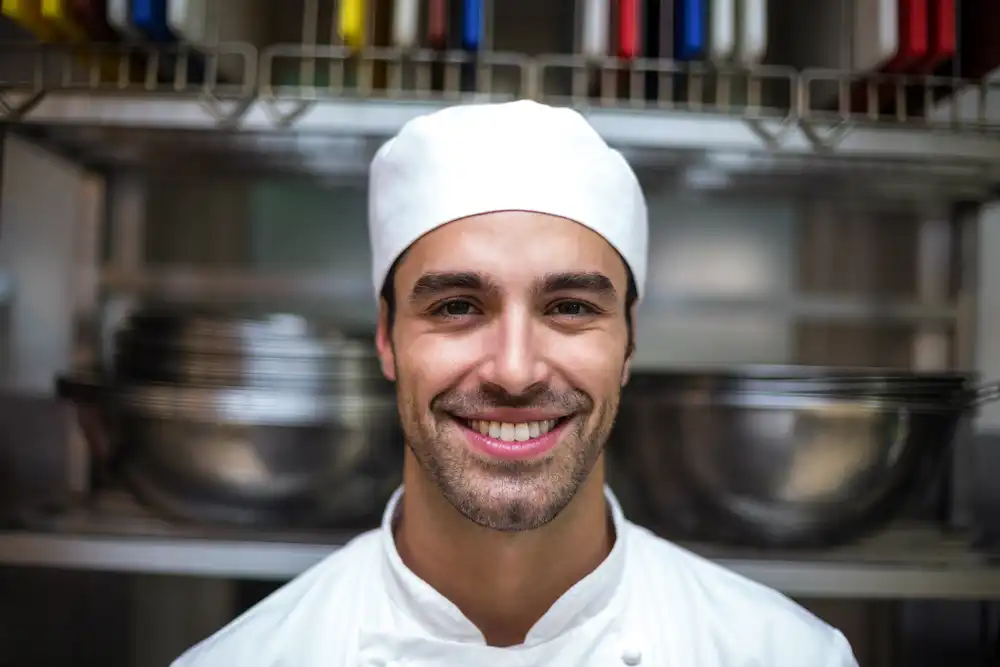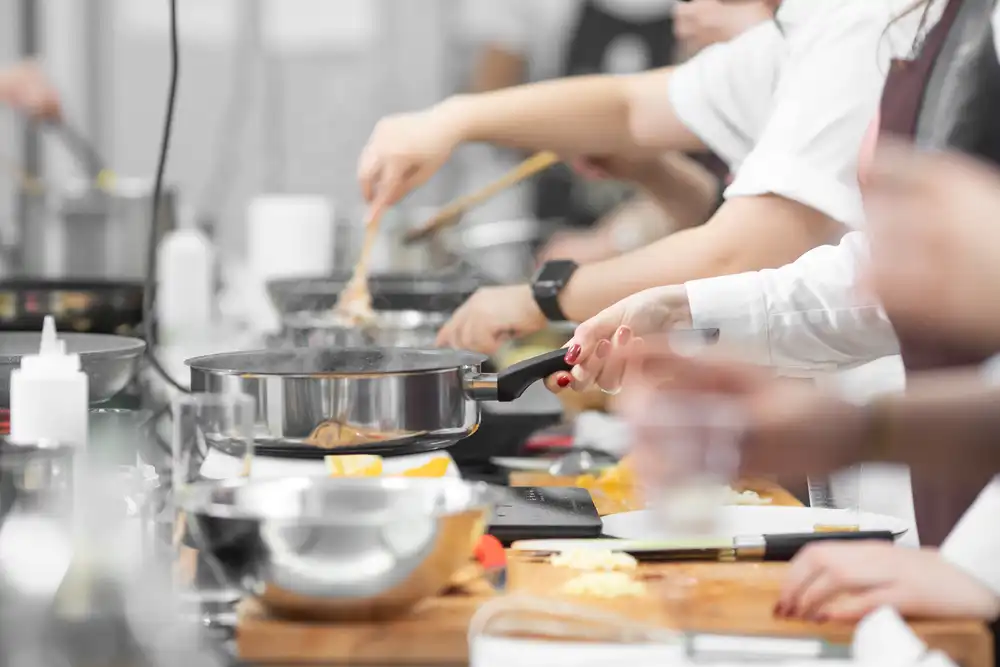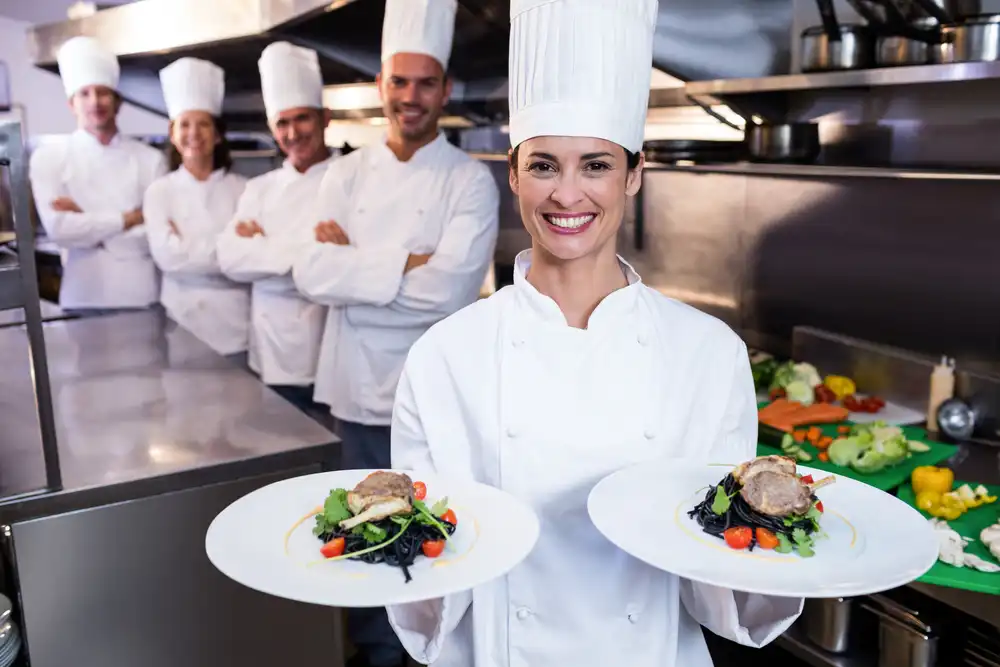Top Culinary Schools in France: Study at the Best French Institutions
Discover the top culinary schools in France, including Le Cordon Bleu and École Ferrandi. Learn about tuition, admissions, scholarships, and career opportunities for aspiring chefs.
loading...

Attending culinary school in France is a dream for many aspiring chefs and is more possible than you may think.
When it comes to culinary education, there is no parallel to studying directly in one of the prestigious schools of France.
For all aspiring chefs, studying culinary art is a dream come true. Chances are if you are reading this, you are an aspiring chef yourself.
Before you start making preparations and applying in French schools, there are a few key things to remember.
Factors like language barriers, tuition fees, and application processes as well as costs of living and others can throw you off.
It’s completely natural to feel concerned and even intimidated. However, this guide is here for you. We will be covering all important areas, and hopefully when you revisit this article, you will be one of the classically trained chefs.
Why Choose a Culinary School in France
There might be many reasons why you chose to go with French schools.
For one, French cuisine is considered the heart of culinary arts. Many celebrity chefs and renowned culinary experts have trained in French institutions.
For example, Julia Child, the beloved American chef who introduced French cooking to the U.S., studied at Le Cordon Bleu Paris.
Gordon Ramsay, a world-famous chef known for his Michelin stars and television shows, trained in France under legends like Guy Savoy and Joël Robuchon.
Similarly, Dominique Crenn, the first female chef in the U.S. to earn three Michelin stars, spent her formative years learning French culinary techniques.
Many famous graduates go on to innovate and develop new master techniques that influence global culinary trends.
Not to mention, there is no parallel to training in France.
The schools there teach techniques, precision and discipline. It can be quite a solid foundation for your career.
Apart from that, the degree obtained from a French culinary school has immense value. Unlike traditional degrees, a degree from a French culinary school will actually open multiple doors for you.
Graduates from prestigious institutions like Le Cordon Bleu or Ecole Ferrandi often find themselves fast-tracked into top-tier kitchens, luxury hotels, and Michelin-starred restaurants.
Many alumni are recruited directly through internship programs tied to these schools, giving them a major advantage in the competitive culinary world.
The programs taught in such schools are well structured and give you hands-on experience, something which is often lacking in most of the institutions. As a student, you will find yourself spending significant time in professional kitchen-like settings.
Now here’s the best part! Many institutions have direct ties to Michelin-starred restaurants, offering internships and apprenticeships that help students build their careers.
Not only do you get a decent education and curriculum, you are also building powerful networks which will launch you in the right career trajectory.

Many of the world's top chefs have trained in France.
Top Culinary Schools in France
There are several prestigious culinary schools in France, each offering unique programs for students at different levels.
Some of the most renowned institutions include:
Le Cordon Bleu (Paris & other locations)
Le Cordon Bleu Paris offers several programs suitable for English-speaking students without fluent French proficiency.
Many courses are taught in French with simultaneous translation into English, ensuring accessibility for non-French speakers.
For instance, the Grand Diplôme®, which combines cuisine and pastry diplomas, is conducted this way.
Additionally, Le Cordon Bleu Paris has introduced Bachelor of Business programs taught entirely in English, catering specifically to international students.
This approach ensures that language barriers do not hinder passionate culinary enthusiasts from receiving top-tier education.
École Ferrandi (Paris)
École Ferrandi is a highly respected school known for its training in classic and modern French cuisine.
At École Ferrandi, students will learn to create some of the dishes that are world-famous and appear on luxury menus of five-star restaurants.
The school offers programs tailored for international students, including English-speaking options. Students gain access to professional internships and real-world kitchen experience.
English-Language Programs
École Ferrandi offers several programs that are taught completely in English. Such programs provide greater accessibility to international students who may have limited abilities in speaking French.
✅ Intensive Professional Programs
Designed for beginners with little or no previous experience, these programs focus on French cuisine, French pastry, and bread baking. They provide hands-on practice in state-of-the-art kitchens and labs.
✅ Bachelor in Culinary Arts and Entrepreneurship
This three-year program combines managerial skills with technical expertise in either “French Cuisine or French Pastry.” It's tailored for students aiming to pursue their passion globally.
✅ Hospitality Management Programs
Both Bachelor's and Master's programs in Hospitality Management are offered entirely in English, preparing students for leadership roles in the global hospitality industry.
Difference Between English and French Programs
While the core curriculum remains consistent, the primary distinction lies in the language of instruction.
English-taught programs are tailored for international students and often include French language courses to facilitate integration.
French-taught programs may require proficiency in French prior to enrollment. Additionally, some internships, especially in local establishments, might prefer or require French language skills.

Culinary training in France is renowned for its rigor and excellence.
Institut Paul Bocuse (Lyon)
Institut Paul Bocuse in Lyon is a popular culinary school for those students who want a lower cost of living. The cost of living in Lyon is considerably less than living in Paris.
And if you have a part time job, it becomes quite manageable.
Institut Paul Bocuse is a leading institution named after the legendary chef Paul Bocuse, offering degrees in culinary arts and hospitality management.
The curriculum combines traditional techniques with modern innovation. The best part? It has a strong international student support and connections with top-tier restaurants.
École de Cuisine Alain Ducasse (Paris)
Founded by Michelin-starred chef Alain Ducasse, this school focuses on contemporary culinary techniques.
For students looking to become private chefs, this school offers smaller class sizes to ensure personalized learning. It is Ideal for those who want an intensive, hands-on experience.
Understanding the Language Barrier
Unfortunately, studying in France comes with its own set of challenges—and perhaps the most recognized among them is the language barrier.
Even if you know some basic French, achieving fluency and keeping up with native-level communication in academic or culinary settings is no small feat.
That said, having a basic grasp of French still gives you an edge. It not only helps you navigate everyday life but also accelerates your path toward fluency.
To build that foundation, it’s a smart idea to start taking French lessons before applying to schools. There are several well-known platforms and apps that help with this, such as DuoLingo and Rosetta Stone.
These resources are accessible and easy to use, but they do require consistent effort.
For example, a study that looked into how well language-learning apps like Duolingo work found that regular use led to big improvements in language skills.
Research also shows that both the desire to learn a language and the amount of time spent doing tasks are important for improving proficiency.
Still, if you're concerned about the language barrier, don’t worry. Many schools offer English-taught programs tailored for international students.
Le Cordon Bleu and École Ferrandi, for instance, have specific programs where all instruction is delivered in English, allowing students from around the world to train without needing fluent French.
Cost of Studying in France and Living Expenses
Tuition And Living Cost Estimates
1. Tuition fees for culinary programs in France typically range from €10,000 to €40,000
2. Housing, food, and transport costs can add an additional €1,000 to €1,500 per month.
3. International students can work part-time up to 964 hours per year (about 20 hours per week), which can help cover living expenses.
This is a difficult topic as many aspiring and talented chefs are put off by the costs of living and education.
That’s the price of world-class culinary training.
However, the more prepared you are, the better. Furthermore, setting aside a budget and looking for a part-time job helps you massively. A little bit of financial planning goes a long way.
For starters, the tuition fees of standard culinary programs will range from €10,000 to €40,000 per year, depending on the school and course level.
The living expenses are tricky, and dependent on your location. Naturally, Paris is going to cost way more than smaller cities such as Lyon and Bordeaux.
You are expected to save at least €1,000 to €1,500 per month for housing, food, and transport.

The city of Lyon, France, a popular destination for culinary students due to its lower cost of living compared to Paris.
The more research you do, the better chances you have at finding the appropriate and budget friendly scholarship programs. There are quite a lot of them available every year.
The only drawback is that getting accepted into financial aid and scholarship programs takes months and even years. Not to mention, if you want to start immediately, you might not be able to secure a decent spot right away.
It’s far better to start applying a year or two before you plan on taking your education to the next level.
International students in France are permitted to work part-time during their studies.
French law allows foreign students to work up to 964 hours per year, equating to approximately 20 hours per week.
This opportunity enables students to supplement their income and assist with living expenses.
How to Apply to a Culinary School in France
The application process involves several steps. They are:
1. Choose the Right School and Program.
You will need to extensively research schools based on curriculum, tuition, location, and language options. Someone from your circle or group of friends might have traveled there before. Ask them for options beforehand.2. Check Admission Requirements.
It's no secret that most schools require a high school diploma and, in some cases, prior kitchen experience.3. Prepare a Personal Statement.
Some schools ask for a motivation letter explaining why you want to study culinary arts. You can find examples and guidelines for writing personal statements on sites like Go Abroad.4. Submit Required Documents.
This may include transcripts, recommendation letters, and proof of language proficiency if needed.5. Apply for a Student Visa.
If you are not an EU citizen, you will need a student visa to study in France. The visa application process can be started by visiting the French consulate's official website in your respective country.
While this process requires time and meticulous preparation, the rewards of studying culinary arts in France are substantial, offering unparalleled education and career opportunities.
Career Opportunities After Culinary School
Studying culinary arts in France is an investment that generally pays off.
After you graduate, you might even miss the hustle you did back then.
Many graduates end up as line cooks or sous chefs in some of the most prestigious kitchens in the world.
There is also the very real possibility you will be working in Michelin-starred restaurants.
You can also become a private chef.
If you specialize in baking or pastry, you can make a really good living in France as it's one of the most in-demand skill sets there.
Furthermore, if you manage to secure good funding, you can open your own venture such as a luxury restaurant or bistro.
If you wish to compare culinary schools in other countries, check out our articles on culinary schools in Italy, Switzerland, Mexico, the United States, and Spain.
Lastly, there's nothing wrong with recognizing if you don't currently have the means to study fulltime or travel abroad.
Or possibly, you may simply want to start learning basic to intermediate culinary skills from home, especially before committing to a full program in France.
In that case, consider our article regarding online cooking schools.
Whatever path you choose, we wish you the best as you continue to invest in your culinary education and career!

A degree from a prestigious culinary school in France can open doors to exciting career opportunities.
©2025 Cocina Digital Hospitality Group, Inc. All rights reserved.
No part of this publication may be reproduced, stored in a retrieval system, or transmitted in any form or by any means, electronic, mechanical, photocopying, recording, or otherwise, without the prior written permission of the publisher.
We use cookies to enable you to use our site, understand how you use our site, and improve your overall experience.
Cookies allow us to personalize content, track which pages are most popular and least popular, and provide advertising that may be relevant to you.
Please note that cookies that are essential to the proper functioning of the site are required and cannot be disabled.
They are usually only set in response to actions made by you which amount to remembering your settings, a request for services, such as setting your privacy preferences, logging in, or filling in forms.
As such, they are the only cookies that are enabled by default.
You can set your browser to block or alert you about these cookies.
By continuing to use our site, you accept our use of cookies.